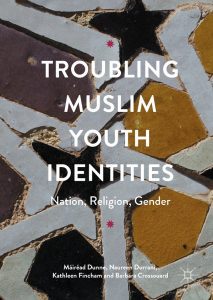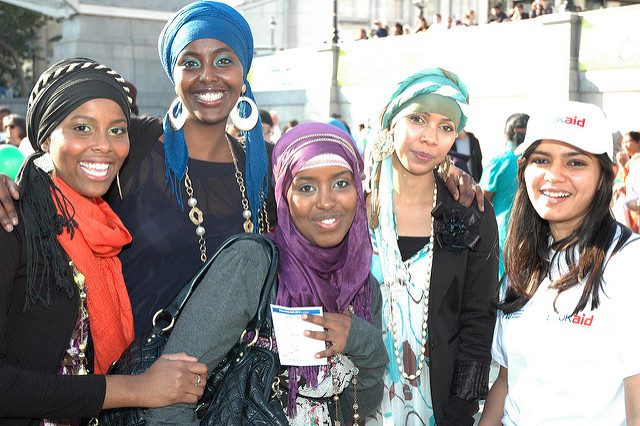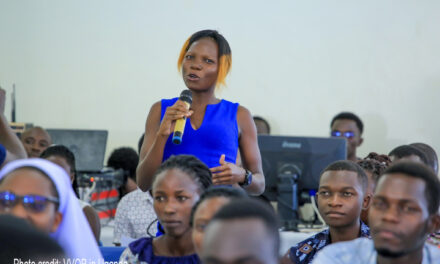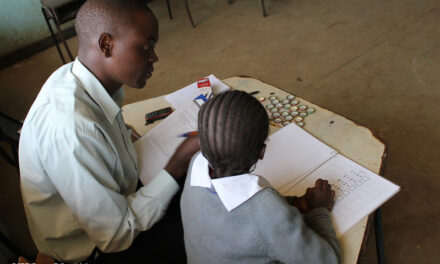Book by Máiréad Dunne, Naureen Durrani, Kathleen Fincham and Barbara Crossouard
2017, London, Palgrave Macmillan
Provoked by contemporary concerns about youth alienation and radicalisation, particularly in the Global South, the central interest of this book is the production of Muslim youth identities. In particular, it explores the construction of youth narratives of identity with respect to nation, religion and gender in the four different national contexts of Pakistan, Senegal, Nigeria and Lebanon. As Muslim-majority, post-colonial states with significant youth populations, these offered critical case studies for the exploration of the different grammars of youth identities.
central interest of this book is the production of Muslim youth identities. In particular, it explores the construction of youth narratives of identity with respect to nation, religion and gender in the four different national contexts of Pakistan, Senegal, Nigeria and Lebanon. As Muslim-majority, post-colonial states with significant youth populations, these offered critical case studies for the exploration of the different grammars of youth identities.
The uniqueness of this book lies in its rigorous and detailed attention to the local, situated and contingent ways in which youth articulate their identities and sense of belonging. This provides a counter to the pervasive homogenisation and decontextualisation that typifies many representations of ‘youth’ within global discourses. Our empirical investigations involved focus group discussions with Muslim and Christian youth in higher education or later years of school, and so a relatively educated elite in these contexts.
Informed by post-structural and post-colonial theories of discourse and identity production, we trace how youth narratives use difference and the notion of the ‘Other’ in framing their identities. In each country case we highlight the complex ways that the history of the nation-state and its imagined community continue to inform social formations and remain significant within youth identity narratives. Importantly, we consider the relationships between national and religious belongings. We highlight how religion, in this case Islam, is used as a significant marker of identity and an axis of difference. However, in our explorations of the intersection of nation and religion, we also show how religious belongings can be recruited to consolidate national and ethnic affiliations in ways that challenge many Western understandings of ‘secular’ modernity.
In each country case, we return to the ways these narratives of identity are persistently inflected by gender. Although largely rendered invisible in hegemonic representations of citizenship, we trace how symbolic representations of the nation and of religious ideals are bound up with particular forms of subordinated, docile femininities. Our analysis traces gender as a key axis of difference in the active production and contestation of female and male youth citizenship identities.
We conclude by reflecting on the importance of affect, belonging and affiliation in the construction of youth narratives of identity as well as highlighting their political and contested nature. In the face of globalising discourses of cosmopolitan citizenship and religious identifications, we illustrate the significance of the local and how this makes particular discourses available for the production of youth identities. Through our four case studies, we demonstrate the continued relevance of the nation to youth as a key structuring influence on their discourses of identity. We further show the ways in which youth’s national affiliations are articulated with their religious affiliations, and finally how youth’s discourses of nation and religion are consistently and pervasively gendered.





